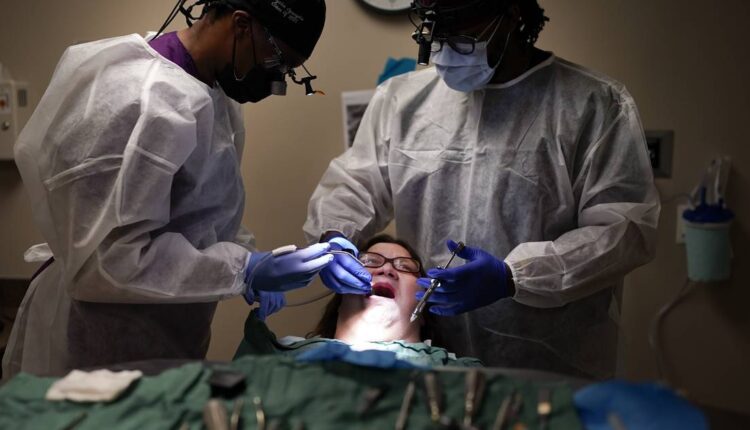
Medicaid Expansion Includes Dental Care in Numerous States
TL/DR –
Six US states have initiated or expanded Medicaid programs to provide dental coverage for adults this year, using a combination of federal and state funding. The expansion of these programs is a response to growing awareness of the significant economic and health costs associated with untreated dental conditions. However, barriers to access persist, including a lack of participating dentists in rural areas and the low reimbursement rates that Medicaid offers compared to private insurers.
New Dental Care Program For Medicaid Recipients Changing Lives in Tennessee
The debilitating pain of a rotting wisdom tooth kept Nashville resident Carlton Clemons awake for months. Struggling with finances, the 67-year-old could not afford dental care, awaiting the rollout of a Medicaid dental care program for adults in Tennessee.
This year, Tennessee introduced a dental care program benefitting its 650,000+ adult Medicaid recipients, costing around $75m annually. For Carlton, who finally had his tooth extracted in July at Meharry Medical College School of Dentistry, it was life-changing.
Emergence of Medicaid Dental Care Programs for Adults
Medicaid, a federal and state initiative, provides dental coverage for children, not adults. However, the economic and health implications of poor dental health have led six states, including Tennessee, to initiate or extend Medicaid coverage for adults in 2021.
Accessing dental care remains a challenge, with some dentists unwilling to treat Medicaid patients and others battling bureaucracy to expand their practice.
Economic and Health Implications of Poor Dental Health
The Centers for Disease Control and Prevention suggest that untreated oral disease costs the United States $45bn annually in productivity. Texas A&M University found that emergency room visits for preventable dental conditions account for up to 2.5% of visits, costing $2bn a year.
Expansion of Dental Coverage Across States
All states offer some form of Medicaid dental benefits for adults. However, coverage may be limited to specific demographics or emergency care, according to the non-profit CareQuest Institute for Oral Health.
In 2021, Hawaii, Tennessee, Kentucky, Michigan, Maryland, and New Hampshire began or expanded their dental coverage. New Hampshire’s $33.4m plan will provide dental care to its 88,000 Medicaid recipients over 12 months.
Shortage of Dentists Accepting Medicaid
Despite advancements, states with expanded care, including Tennessee, face the challenge of too few dentists accepting Medicaid patients. Only about 15% of dentists in New Hampshire, 24% in Tennessee, and 27% in Virginia accept Medicaid.
Low Medicaid reimbursement rates are often blamed for this reluctance, with rates ranging from 13.3% in New Jersey to 76.9% in Delaware, based on 2022 data analyzed by the American Dental Association.
Patients Travelling Miles for Dental Care
Despite hurdles with Medicaid’s billing system and challenges in hiring new dental staff, Tennessee Family Dental has seen an influx of Medicaid patients. Some patients have traveled from over 30 minutes away for care, highlighting the growing demand for Medicaid dental services.
Danielle Wilkes, a 26-year-old mother from Ashland, Tennessee, had been awaiting dental treatment for five years. After a 90-minute drive, she finally received treatment at Tennessee Family Dental. Despite having to pay $400 that Medicaid did not cover, Danielle expressed relief and joy at finally getting the work done.
Call for More Comprehensive Dental Coverage
While changes are welcomed, limited benefits are still offered in states like Texas, Alabama, Mississippi, Utah, and Louisiana. As states continue to enhance dental coverage, the hope is for more comprehensive and accessible dental care for those in need.
Read More Health & Wellness News ; US News
